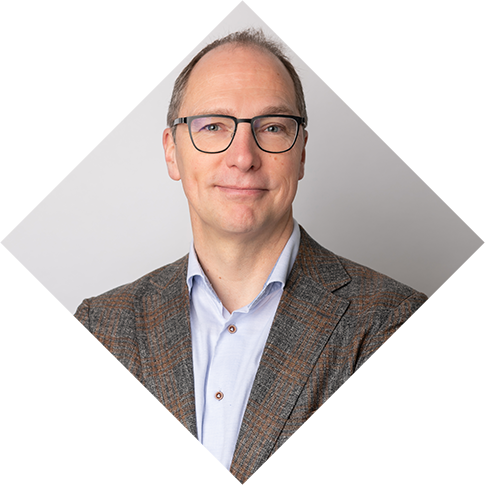Category: Innovation Infrastructure
Field Lab Bioproces Pilot Facility propels DAB’s biotech innovation
In the quest for drastic CO2 reductions, there is a huge demand for alternatives to crude oil-based products for application in products such as plastics, chemicals and fuels. This demand is coming from various industries, from pharma to energy, food and packaging and many more. As a response, a wide range of biobased alternatives is being developed, mostly produced by means of a fermentation process. Major obstacles in scaling up most biobased solutions are the low productivity and cost-efficiency of these fermentation processes. Innovation program Energie & Klimaat (Energy & Climate) stimulates collaboration between companies and laboratories or fieldlabs in order to scale up and bring new innovations to the market faster. It provides subsidies as well as consultation to support the consortia.
FAST is a proprietary bioreactor technology based upon biosynthesis. The oil droplets, produced out of biomass are purified by microorganisms. This process accelerates production and makes it much more sustainable, at half the costs of the original process. Kirsten Steinbusch, CEO of DAB: “With our technology, we want to provide society with biobased feedstock, so that fossils are no longer needed.”

© Verkijk.nl
DAB was founded in 2014 as a TU Delft spin-off, after devoting ten years to research into the unique bioreactor technology. As part of this, Kirsten developed the FASTer Biochemicals and Fuels project in 2018, for which she participates in regional innovation program Energy & Climate. This program, made available by several public partners in greater Rotterdam – The Hague, stimulates sustainable innovation with cash, knowledge-sharing and stimulating new partnerships. In particular, efforts are focused on strengthening the regional field lab infrastructure. For example, DAB is interlinked the Delft fieldlab Bioprocess Pilot Facility (BPF), which provides lab facilities and testing options. This innovation program propels DAB’s research ahead.
New separation method
FAST technology builds on the age-old process of fermentation: bacteria, fungi and yeasts are used to convert substances, changing the taste, smell, shelf life or appearance. In this way, for example, yoghurt and beer are made. “The micro-organisms are a kind of mini-factories,” explains Kirsten. “You put sugar in it and the organism turns it into product x or y.” But in order to do that, the product must first be separated from the medium in which it is located, for example, water. And that separation makes the fermentation process so expensive.
Kirsten: “The current purification methods, such as centrifugation and distillation, are very energy intensive and require high investment costs. We have now found an alternative to this. The unique thing about our separation method is that it also works during production, so that the process run continuously. “

© Verkijk.nl
A method for separating micro-organisms from its medium in a continuous fermentation process, without intermediate steps, has been known in science for several years now. The only remailing medium was oil, for which no such method was available. Kirsten explains: “You can produce oil with micro-organisms, but then you get that in a mayonnaise-like emulsion. To extract the oil droplets, you had to centrifuge the emulsion or add chemicals to it. “The FAST technology makes it possible to separate the oil droplets from the emulsion faster and much cheaper. And that makes the invention interesting for the market as well as for science: the process acceleration increases productivity by about thirty percent. And thus halves production costs.
Kirsten: “Few Dutch people are aware of the strong position that our country, and certainly greater Rotterdam -The Hague, with the port of Rotterdam, occupies in the field of chemistry. However, our climate targets call for radical changes in the production methods in various sectors. We must prepare for that transition, especially if we want to stay ahead. Biochemistry is a very good answer to this: by mimicking natural processes in the factory, we make ourselves independent of scarce substances, such as orange flavor, silk and petroleum. Nature still offers so many possibilities. “
About innovation Programme Energy & Climate
Regional innovation programme Energy & Climate provides subsidies and consultation to collaborative innovation projects between companies and laboratories or fieldlabs. Over €3,6 million in funding has been made available through the program, to support companies in testing and demonstrating new technologies and making innovations ready for the market by making use of the regional field lab infrastructure.
The Energy & Climate programme focuses on 4 themes:
- Making the built environment more sustainable
- Large-scale generation and storage of energy
- Electrification of the industry
- Circular raw materials in the industry
CO2 neutral production
The Energy & Climate innovation program contributed to the multi-million dollar investment that DAB received. The subsidy, which was awarded to facilitate the collaborative plans of DAB and BPF, opens the door to a follow-up investigation. DAB scales up the technology in collaboration with Wageningen Food and Biobased Research. Kirsten: “With the knowledge and experience of Wageningen and thanks to our current financial space, we can cultivate several micro-organisms. This enables us to demonstrate a new way of bio-manufacturing, an important step in our research. ”
The DAB laboratory moved from incubator YES! Delft to the Biotech Campus Delft. This enabled DAB to do more lab tests, including an application with algae. BPF also helped run the pilots and the proof of concept, which resulted in a substantial subsidy from the RVO for DAB. Kirsten: “Of course we need financial support, but I especially appreciate the publicity that is given from the program to energy and climate. They do this very well by talking about it, writing about it and setting up fieldlabs and cooperation programs. ”
Interested in the facilities and services available at Biotech Campus Delft, Bioprocess Pilot Facility or other Field Labs in our region?
Please don’t hesitate to get in touch!




